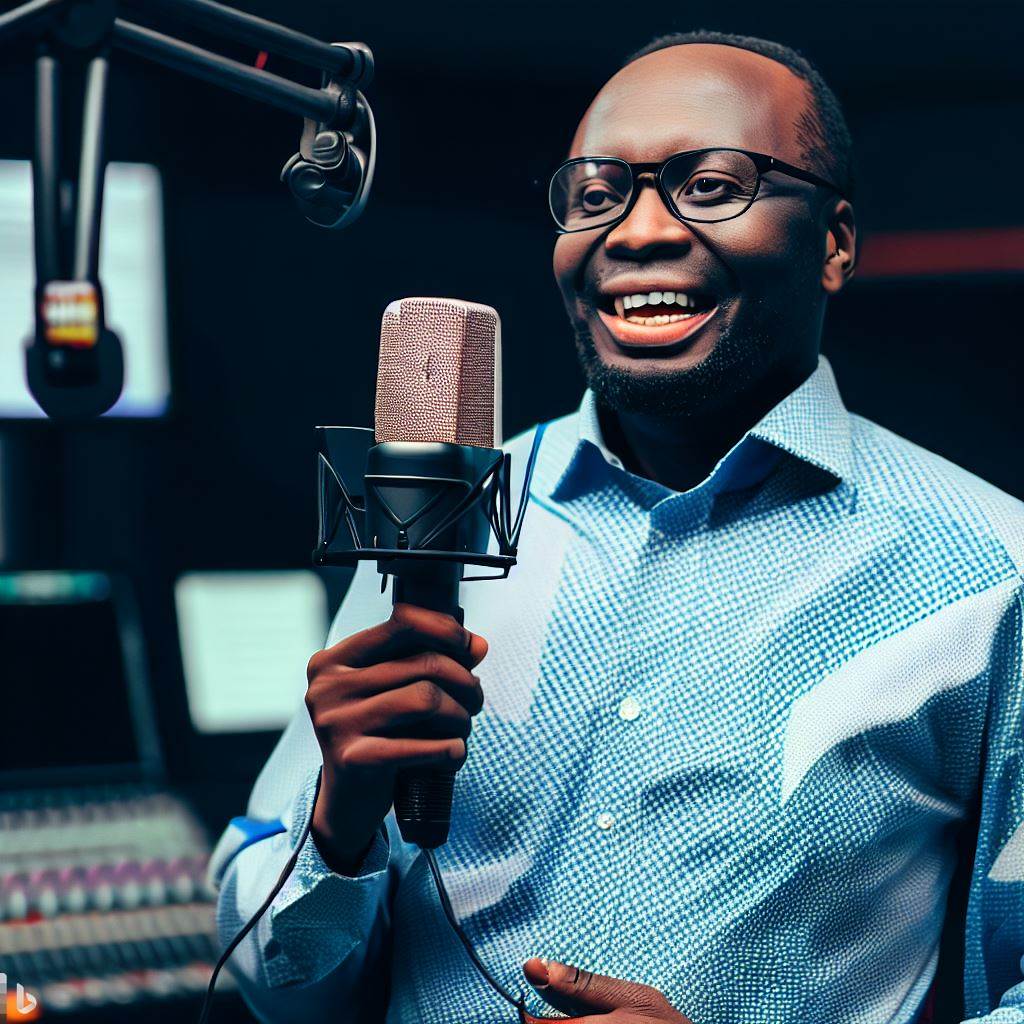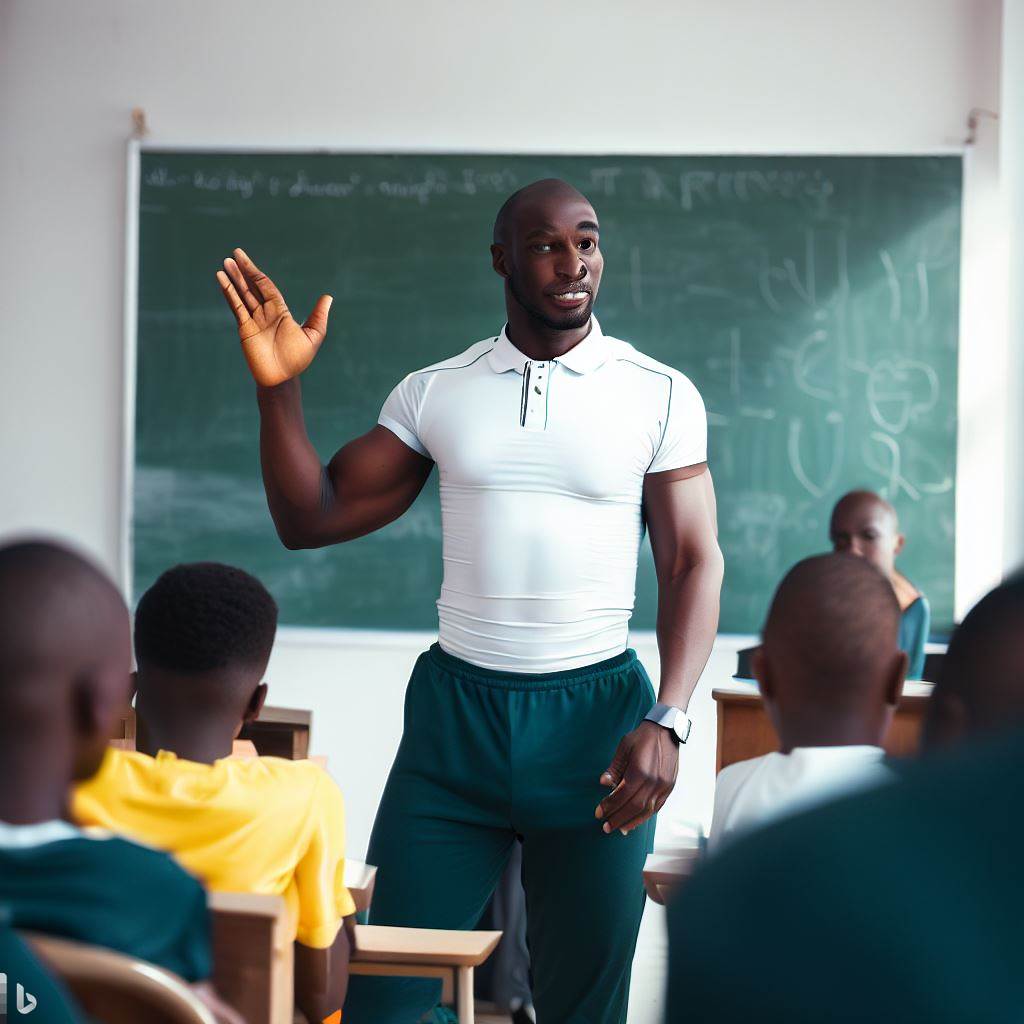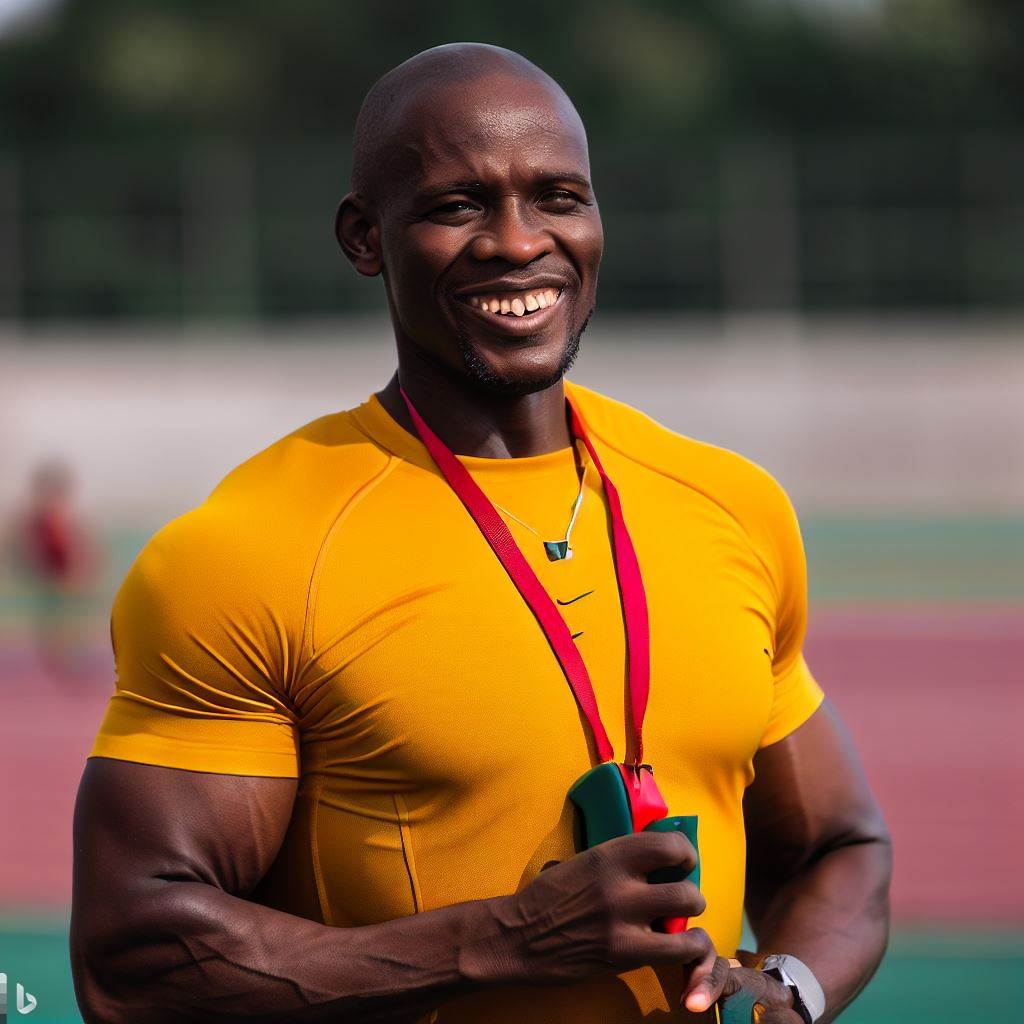Introduction
A. Importance of radio sports production in Nigeria
Radio sports production plays a vital role in Nigeria’s media landscape, offering an avenue for sports enthusiasts to stay connected with their favorite teams and athletes.
It provides an immersive experience by delivering real-time updates, match commentary, and analysis, fostering a strong sense of community among listeners.
B. Overview of educational paths to pursue a career in radio sports production
To embark on a successful career in radio sports production, aspiring individuals can follow various educational paths.
The first option is pursuing a degree in Mass Communication or Journalism, which equips students with the necessary skills in broadcasting, journalism ethics, and media management.
Another path is through sports media schools that offer specialized programs focusing on sports broadcasting techniques, play-by-play commentary, and sports journalism.
These institutions provide hands-on training and mentorship, allowing students to develop practical expertise.
Additionally, internships with sports radio stations or local media outlets can provide valuable experience and networking opportunities.
The digital era has also opened doors to online courses and platforms that offer specific radio sports production training, allowing individuals to learn at their own pace and convenience.
In a nutshell, radio sports production plays a crucial role in Nigeria’s sports industry, providing a platform for sporting events to be shared with a wide audience.
Pursuing a career in this field requires a mix of theoretical knowledge, practical training, and passion for sports journalism.
Educational Paths for Radio Sports Production in Nigeria
A. Bachelor’s Degree Programs
1. Majoring in Mass Communication or Broadcasting
- Take relevant coursework and explore specialization options.
- Gain valuable internship opportunities and build industry connections.
2. Majoring in Sports Journalism
- Enjoy the benefits of focusing on sports-related courses.
- Obtain practical experience in sports reporting and broadcasting.
When pursuing a career in Nigerian radio sports production, specific educational routes offer crucial guidance.
Bachelor’s degree programs provide valuable opportunities for acquiring relevant skills and knowledge.
One primary pathway entails choosing Mass Communication or Broadcasting as a major. Students in this field gain fundamental insights into various media and communication facets.
Subjects covered include journalism, media ethics, media production, and mass communication theories.
Moreover, specializing in radio sports production within this coursework hones specific sports broadcasting skills.
Students also access internships for practical industry exposure, fostering future job prospects through network building.
Alternatively, majoring in Sports Journalism represents another educational avenue. This specialization concentrates on sports-related courses like sports reporting and sports broadcasting.
It delves deeper into the intricacies of producing sports content for radio.
A significant advantage of majoring in Sports Journalism lies in the hands-on experience provided.
Students cover live sporting events, interview athletes, and craft sports news packages, cultivating skills in play-by-play commentary, sports analysis, and radio sports program production.
To summarize, a Mass Communication or Broadcasting bachelor’s degree with a sports journalism focus furnishes a solid radio sports production foundation.
Through internships and specialized coursework, individuals gain knowledge, skills, and valuable industry connections.
Read: Salary of a PE Instructor in Nigeria: What to Expect?
Alternative Educational Paths
Alternative educational paths provide opportunities for individuals to pursue a career in radio sports production in Nigeria.
These paths offer different options for acquiring the necessary skills and knowledge in this field.
A. Technical/Vocational Training
1. Benefits of acquiring technical skills in radio sports production:
Acquiring technical skills in radio sports production can open doors to various career opportunities.
These skills enable individuals to work in different roles such as sound engineers, audio technicians, producers, and production assistants.
Technical skills also provide a solid foundation for individuals interested in the technical aspects of radio broadcasting and production.
2. Certification programs and workshops available in Nigeria:
Nigeria offers certification programs and workshops specifically designed for individuals interested in radio sports production.
These programs provide practical training on various aspects of radio production, including sports coverage, commentary, sound editing, and equipment operation.
These training opportunities not only enhance technical skills but also provide individuals with industry-relevant experience and knowledge.
B. Online Courses and Self-Study
1. Advantages of pursuing online courses:
Online courses offer flexibility and convenience, allowing individuals to learn at their own pace and schedule.
They provide an accessible and cost-effective way to acquire knowledge and skills in radio sports production.
Online courses often offer interactive modules, practical assignments, and access to industry experts, ensuring a comprehensive learning experience.
C. Recommended online platforms for radio sports production education:
There are several recommended online platforms that offer courses specifically focused on radio sports production.
These platforms provide comprehensive curriculum covering various topics such as sports play-by-play, sports news reporting, interviewing techniques, and audio production.
Some popular platforms include Udemy, Coursera, and LinkedIn Learning, which offer a wide range of courses taught by industry professionals.
By exploring alternative educational paths such as technical/vocational training and online courses, individuals can gain the necessary skills and knowledge to thrive in radio sports production in Nigeria.
These paths offer diverse opportunities for individuals to pursue their passion and contribute to the exciting world of sports broadcasting.
Read: Physical Education Careers in Nigeria: A Beginner’s Guide
Industry Experience and Networking
A. Importance of gaining practical experience in radio sports production
- Practical experience is crucial for anyone aspiring to pursue a career in radio sports production.
- It provides hands-on learning opportunities that cannot be obtained through theoretical education alone.
- Working in a real-life radio sports production environment helps develop essential skills and abilities.
- Practical experience also offers the chance to learn from experienced professionals in the field.
- It allows individuals to understand the intricacies of radio sports production firsthand and refine their abilities.
B. Volunteering and interning at radio stations or sports organizations
- Volunteering at a radio station or sports organization is a valuable way to gain practical experience.
- It provides opportunities to work on actual radio sports production projects and learn from professionals.
- Volunteers can assist in various tasks, such as audio editing, scriptwriting, or live event coverage.
- Internships at radio stations or sports organizations offer more immersive and structured learning experiences.
- Interns can shadow experienced professionals, participate in production meetings, and contribute to daily operations.
- Volunteering and interning allow individuals to build their portfolios and establish contacts in the industry.
C. Building a professional network through industry events and associations
- Attending industry events, such as conferences or workshops, is an effective way to expand one’s network.
- These events provide opportunities to connect with industry experts, professionals, and potential employers.
- Engaging in conversations and discussing topics related to radio sports production can create valuable connections.
- Joining industry associations, such as the Nigerian Radio Sports Production Association, enhances networking possibilities.
- These associations host events, seminars, and webinars that facilitate professional connections and knowledge sharing.
- Building a professional network opens doors to job opportunities and collaborations in the radio sports production industry.
To excel in radio sports production in Nigeria, it is essential to gain industry experience and build a strong network.
Practical experience offers invaluable learning opportunities and the chance to acquire essential skills.
Volunteering and interning at radio stations or sports organizations provide hands-on involvement in real-life projects.
Such opportunities contribute to the development of a comprehensive skill set and allow individuals to learn from experienced professionals.
Additionally, actively participating in industry events and joining associations expands one’s professional network.
Networking provides avenues for meeting experts, potential employers, and like-minded individuals.
Attending conferences and engaging in conversations within the community strengthens connections and fosters collaboration.
By combining practical experience and a robust network, aspiring radio sports production professionals in Nigeria can increase their chances of success in this competitive field.
Read: Trends and Innovations in Athletic Training in Nigeria

Delve into the Subject: Strength Coach Ethics: Standards in Nigeria
Skills and Knowledge Required for Radio Sports Production
A successful career in radio sports production in Nigeria requires a set of specific skills and knowledge.
These skills and knowledge will enable individuals to effectively produce engaging sports content for radio broadcasting.
Some of the essential skills and knowledge required are:
A. Broadcasting and Announcing Skills
- Strong verbal communication skills to deliver clear and concise sports commentary.
- Ability to engage and entertain listeners through expressive and energetic broadcasting.
- Excellent voice modulation and pronunciation to enhance the quality of sports broadcasts.
- Knowledge of radio presentation techniques to captivate the audience and maintain their interest.
B. Sports Knowledge and Research Abilities
- Extensive knowledge of different sports, including rules, players, history, and current events.
- Constantly staying updated on the latest sports news and developments.
- Adept at conducting thorough research to provide accurate and insightful analysis during broadcasts.
- Understanding the dynamics of sports teams and their strategies to deliver informed commentary.
C. Technical Skills in Audio Production and Equipment Operation
- Proficiency in audio recording, editing, and mixing software for the production of high-quality sports content.
- Ability to operate radio equipment, including microphones, soundboards, and audio consoles.
- Knowledge of sound engineering principles to ensure optimal sound quality during live broadcasts.
- Understanding of audio compression and noise reduction techniques to enhance sports audio.
D. Adaptability and Ability to Work Under Pressure
- Flexibility to adapt to dynamic sports situations, such as unexpected game outcomes or changes in schedules.
- Calmness and composure to handle high-pressure broadcasting scenarios during live sports events.
- Ability to make quick decisions and provide real-time analysis without compromising the quality of commentary.
- Efficient time management skills to meet tight deadlines for producing sports content.
Developing these skills and acquiring the necessary knowledge can be achieved through a combination of formal education, practical experience, and continuous self-improvement.
Aspiring radio sports producers can pursue relevant courses in broadcasting, journalism, or sports communication to gain a solid foundation.
Furthermore, hands-on experience through internships or work opportunities with sports radio stations can provide invaluable exposure to the industry.
This allows individuals to refine their skills, learn from experienced professionals, and build a strong portfolio of work.
Additionally, keeping up with the latest sports news and trends, attending sports events, and networking with industry experts can contribute to a well-rounded understanding of radio sports production.
In summary, to succeed in radio sports production in Nigeria, individuals need to possess broadcasting and announcing skills, sports knowledge and research abilities, technical skills in audio production, and equipment operation, as well as adaptability and the ability to work under pressure.
Continuous learning and practical experience are key to honing these skills and staying relevant in the ever-evolving field of radio sports production.
Read: Job Interview Tips for Sports Information Director Aspirants
Conclusion
A. Recap of educational paths discussed
- Diploma programs: Enroll in diploma courses in media studies, broadcasting, or journalism.
- Bachelor’s degrees: Pursue a bachelor’s degree in communication, media production, or sports journalism.
- Online courses: Explore online platforms offering courses in radio production and sports commentary.
- Workshops and internships: Gain practical experience through workshops and internships at radio stations.
B. Potential for a successful career in radio sports production in Nigeria
- Booming industry: Nigeria’s sports broadcasting industry is thriving, offering numerous job opportunities.
- Growing demand: The demand for skilled radio sports producers is on the rise, creating a favorable job market.
- Exciting prospects: A career in radio sports production offers a chance to cover exciting events and work with top athletes.
C. Encouragement to explore educational opportunities
- Follow your passion: Pursue your dream of becoming a radio sports producer by acquiring the right skills.
- Networking: Connect with professionals in the field and seek mentorship opportunities.
- Continuous learning: Stay updated with industry trends and technology advancements.
- Persistence pays off: Keep honing your skills, and success will follow in the dynamic world of radio sports production in Nigeria.




